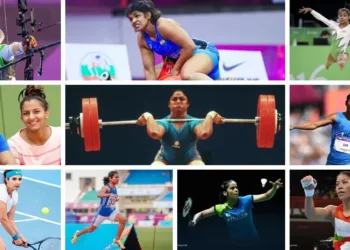The asymmetrical dress trend has taken Bollywood by storm, and two of its most stylish stars recently gave masterclasses in how to wear this tricky silhouette. Jacqueline Fernandez, the Sri Lankan beauty known for her bold fashion choices, and Sharvari Wagh, the rising star with an edgy aesthetic, both stepped out in strikingly different interpretations of the asymmetrical dress trend within days of each other. Their sartorial showdown has sparked heated debates among fashion enthusiasts – is Jacqueline’s glamorous take more appealing or does Sharvari’s contemporary styling win the day?
This fashion deep dive goes beyond surface-level comparisons to analyze how each actress made the look her own. From fabric choices to accessory pairings, we’ll break down every element of their outfits with insights from top stylists. More importantly, we’ll explore what these contrasting approaches reveal about their personal styles and how you can adapt the asymmetrical trend for your own wardrobe, whether you prefer Jacqueline’s red carpet glam or Sharvari’s street-style edge.
Table of Contents
Jacqueline’s Golden Moment: Old Hollywood Glam Meets Modern Edge
Jacqueline Fernandez chose a molten gold asymmetrical gown by Lebanese designer Nicolas Jebran for a high-profile awards night, proving why she remains one of Bollywood’s most reliable red carpet stars. The dress featured a daring single-sleeve design with a thigh-high slit on the opposite side, creating perfect visual balance despite its asymmetrical nature. What made Jacqueline’s interpretation stand out was her understanding of proportion – she paired the flashy dress with simple nude Christian Louboutin heels and minimal jewelry (just diamond studs and a delicate bracelet), letting the dress remain the undisputed star.

Her beauty choices amplified the look’s impact – sleek middle-parted hair kept the focus on the neckline, while soft smoky eyes and nude lips maintained the golden theme without venturing into gaudy territory. Fashion critic Namrata Zakaria notes, “Jacqueline consistently demonstrates how to wear bold designs without being overwhelmed by them. This look succeeds because she serves as the perfect canvas – her toned physique showcases the dress’s architecture while her styling ensures everything feels cohesive rather than chaotic.” The overall effect was modern Hollywood glamour – think Grace Kelly reimagined for the Instagram age.
Sharvari’s Avant-Garde Approach: Asymmetry with an Urban Twist
Emerging star Sharvari Wagh took the asymmetrical trend in a completely different direction during a Mumbai promotional event, opting for an edgy black number by Indian designer Rahul Mishra. Her interpretation played with asymmetry in multiple dimensions – one shoulder exposed, uneven hemline, and diagonal cutouts at the waist. Where Jacqueline went for liquid metallic elegance, Sharvari embraced structural drama with the dress’s origami-like folds and matte texture. Her styling choices reinforced this contemporary vibe: chunky silver ankle boots by Amina Muaddi, geometric silver earrings by Misho, and a messy bun that looked deliberately undone.

What made Sharvari’s look particularly noteworthy was how it aligned with her rising brand as Bollywood’s new alternative style icon. Unlike Jacqueline’s red carpet-ready perfection, Sharvari’s outfit had an intentional raw edge – the visible stitch detailing, the slight wrinkling of the fabric, even her smudged eyeliner all contributed to a look that felt more artist studio than luxury ballroom. Stylist Mohit Rai observes, “Sharvari understands that today’s fashion audience appreciates seeing the human element in high fashion. Her slight imperfections make the look relatable while still being aspirational.” This approach perfectly captures how Gen Z stars are redefining Bollywood glamour.
The Verdict: Two Schools of Asymmetrical Style
Comparing these looks isn’t about declaring a winner, but rather appreciating how the same trend can inspire radically different yet equally valid interpretations. Jacqueline’s version represents asymmetrical dressing at its most polished – the kind of look that photographs beautifully from every angle and feels appropriate for formal events. Sharvari’s take shows how to make the trend feel fresh and youthful, perfect for fashion-forward occasions where standing out matters more than blending in.
Fabric choice played a crucial role in their stylistic divergence. Jacqueline’s fluid metallic jersey draped and moved like liquid, emphasizing her dancer’s grace. Sharvari’s stiff neoprene-like material created architectural interest but required her to work harder to avoid looking constrained – which she achieved through her relaxed posture and playful accessories. Their color selections also told different stories: gold signaling luxury and celebration versus black conveying sophistication and edge. Ultimately, both actresses demonstrated how to adapt a runway trend to their personal brand identities – a lesson any fashion enthusiast can apply.
How to Wear Asymmetrical Dresses Like a Star
For those inspired to try the asymmetrical trend, stylists recommend starting with these celebrity-approved approaches. If channeling Jacqueline’s glamour, opt for monochromatic looks in luxe fabrics (satin, silk, or metallic knits) with clean lines. Keep accessories minimal and let one dramatic element (whether it’s a sleeve, slit, or neckline) dominate. For Sharvari’s contemporary edge, experiment with mixed textures, unexpected hemlines, and bold footwear. The key is balancing the dress’s imbalance – if one shoulder is bare, consider an earring on that side; if the hem is uneven, show off great shoes.
Both actresses demonstrated the importance of confidence in pulling off these looks. Asymmetric designs naturally draw attention, so wearing them requires owning your space. Notice how Jacqueline stood tall with shoulders back to showcase the neckline, while Sharvari’s slightly slouched posture made her outfit feel effortless rather than stiff. Their makeup choices also offer valuable lessons: when the dress makes a strong statement, beauty looks should complement rather than compete.
Conclusion: Celebrating Fashion’s Beautiful Imbalance
Jacqueline Fernandez and Sharvari Wagh’s asymmetrical style showdown reminds us that fashion thrives on interpretation. Where Jacqueline brought red carpet polish, Sharvari injected youthful rebellion – proving this trend has room for multiple approaches. Their looks also reflect broader shifts in Bollywood fashion, where established stars and newcomers are rewriting style rules simultaneously. Perhaps the real takeaway isn’t who wore it better, but how both actresses demonstrated the power of using clothing as personal expression.
FAQs
1. Can petite women wear asymmetrical dresses?
Absolutely! The key is proportion – shorter hemlines and single-shoulder designs can actually create the illusion of height. Both Jacqueline and Sharvari are under 5’6″ but made the silhouette work through smart styling.
2. What body types suit asymmetrical designs best?
Contrary to popular belief, asymmetry flatters all figures by drawing attention to assets. Apple shapes can emphasize shoulders/arms, hourglasses can highlight waists, and pear shapes can show off legs.








